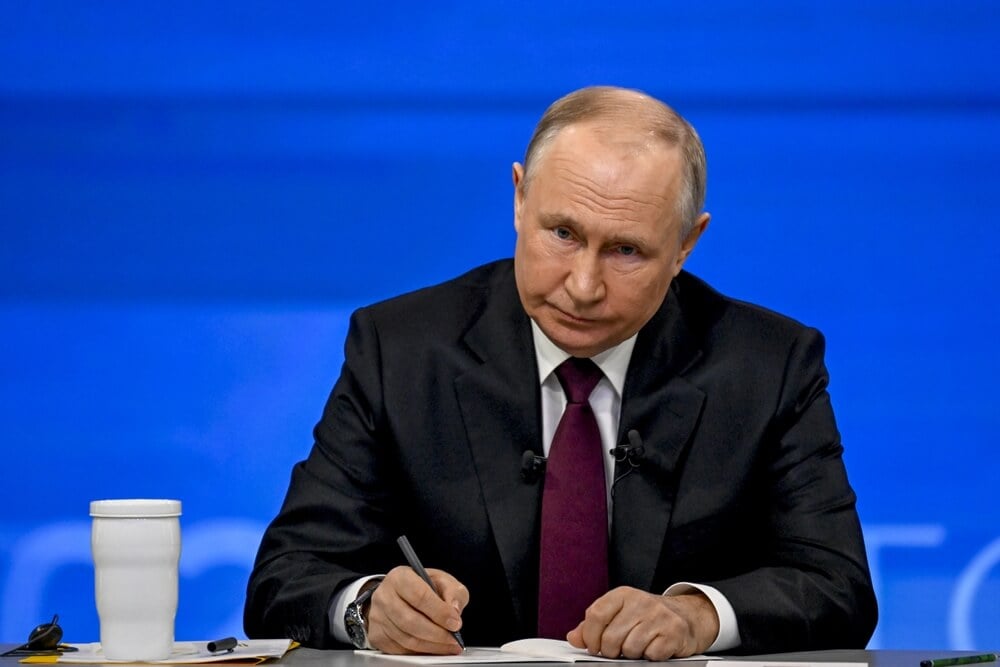Almost 7 million citizens of Belarus will vote for the country's president on Sunday, although it will be another rigged election, as the victory of authoritarian leader Alexander Lukashenko is not under question.
Lukashenko (71) received around 81% of the vote in the last elections in 2020, and his goal on Sunday can only be to surpass this result or even that of Vladimir Putin in the presidential elections in Russia last year, when he received more than 88% of the vote.
The Belarusian autocrat has now not repeated the "mistake" of 2020, when he allowed some of his opponents to participate in the elections. They are now either in prison or in exile.
Regardless of the inertia of repression, which will be repeated in Sunday's elections, a certain new term for Lukashenko is bringing his country back into the focus of international attention, particularly in the context of a possible peaceful resolution in Ukraine.
Tying fate to Russia
From the beginning, Belarus has actively assisted Russian aggression, acting as a launchpad for attacks on Ukraine and even serving as a new location for nuclear weapons for its most significant ally.
Over the past three years, Lukashenko has done everything that his most important patron, Vladimir Putin, has asked of him. Belarus was the base for tens of thousands of Russian soldiers who invaded Ukraine and subsequently received a number of Russian nuclear weapons.
The Belarusian authorities have actively participated in the Russian project of forcibly abducting Ukrainian children. At least 2,400 children between the ages of 6 and 17 were taken to Belarus and subjected to re-education.
Lukashenko has linked his and his government's fate with that of Russia and its leader during the war in Ukraine
The president, who has been in power for 30 years, has undoubtedly linked his and his government's fate with that of Russia and its leader during the war in Ukraine. The consequences of this are the equally strong isolation and sanctions imposed on Russia by the West.
However, the impact of the Western approach towards Belarus has not been particularly effective so far, and Lukashenko's new presidential term and the consolidation of his regime will be new proof of this.
The West will not recognise the elections
The European Union will neither recognise the results of Sunday's elections nor Lukashenko as president, as there have been "ongoing and long-standing grave violations of human rights and democratic principles in Belarus," according to a resolution passed by the European Parliament on Wednesday.
The US will do the same, regardless of the change of administration, because the new government will probably maintain the position announced by former Secretary of State Antony Blinken before he left office that the elections in Belarus "cannot be free or fair because of a repressive environment in the country."
Belarusian opposition leaders in exile continue to appeal to Europe and the US not to lose sight of events in their country
Numerous Belarusian opposition leaders in exile continue to appeal to Europe and the US not to lose sight of events in their country, but their demands are mostly limited to tightening sanctions and targeting them at the regime rather than the population.
"I really don't want people to sacrifice their freedom at the moment for nothing, in vain. I ask people to save themselves for a really proper moment," said Svetlana Tikhanovskaya, who has been in exile in Lithuania since 2020, when, according to the opposition, she won presidential elections against Lukashenko.
Belarus is therefore facing an extension of its political hibernation as an isolated country excluded from European political and economic flows, with little prospect of a solution for its future outside the context of the Russian invasion of Ukraine.
Courting China
Alexander Lukashenko himself seems to realise that this is not the best outcome for his rule, as he knows that there will be little room for his country's influence, let alone for him personally, in a possible future thaw.
He has been trying to diversify his total dependence on Russia by strengthening relations with China. However, he has been experiencing ups and downs in the process, as Beijing doses these relations exclusively according to its interests.
 Russia treats Belarus as its de facto integral part and will not grant it much autonomy in the possible future resolution of the crisis over Ukraine
Russia treats Belarus as its de facto integral part and will not grant it much autonomy in the possible future resolution of the crisis over Ukraine
Lukashenko planned to visit Beijing just before the presidential elections to give voters a strong confirmation that the country is not isolated and that he is respected on the international stage.
"What is a meeting with Xi Jinping and a visit to China? It is the future of our country," he told his associates at the beginning of January. However, the visit never happened, and there was no explanation for the cancellation.
Lukashenko's rare public appearances during the election campaign and, in particular, the absence of the widely publicised visit to Beijing fuelled rumours about his poor state of health and also about turbulence in the country's leadership.
It is even more likely that the cancellation of the visit to China was influenced by Moscow, which certainly does not want Belarus to get too close to it and fall out of the tight Russian embrace, especially for China to become "the future of Belarus," as Lukashenko said.
Russia treats Belarus as its de facto integral part and will not grant it much autonomy in the possible future resolution of the crisis over Ukraine. However, almost all Belarusians (97% according to some polls) support the state independence of Belarus, despite the fact that the majority still accept close relations with Moscow.
Despite a certain victory in the upcoming sham elections, Lukashenko will not be able to offer his compatriots more than what they have today, namely a rather difficult economic situation and strong repression against opponents.